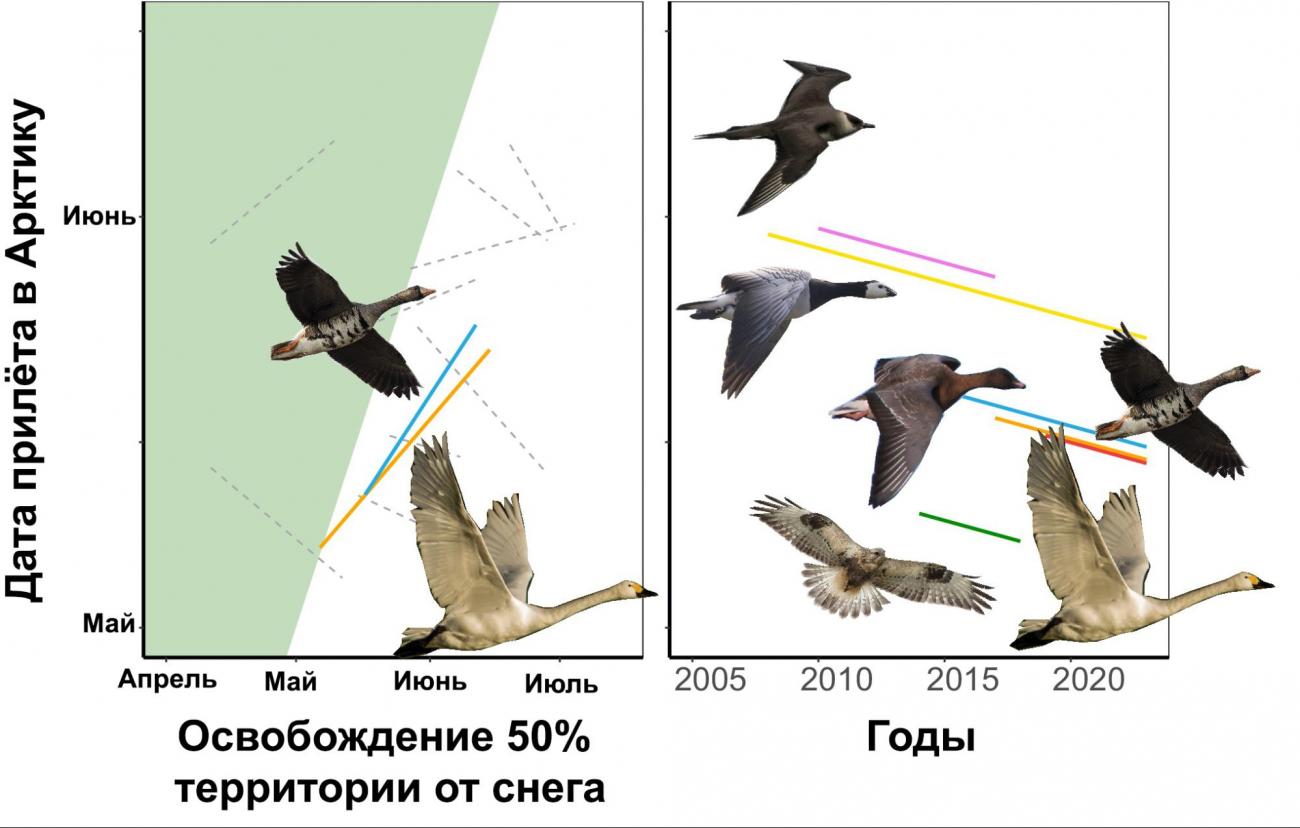
An international team of scientists has studied the consequences of global warming in the Arctic, combining a large pool of long-term data on 12 populations of 9 bird species. The work was attended by an employee of the Bird Ringing Center of the A.N. Severtsov Institute of Ecology and Evolution of the Russian Academy of Sciences (IEE RAS), senior researcher, PhD in biology Sergey Valerievich Volkov.
Global climate change is most clearly manifested in the Arctic, the increase in average annual temperatures is more than twice as high as in temperate regions. Earlier snowmelt and ecosystem development affect the established connections in communities, disrupting traditional interactions. To compensate for the negative consequences of desynchronization between different phenomena, migrating birds have to optimize their migration strategies, including shifting wintering areas closer to nesting sites, starting from wintering grounds earlier, increasing the speed of migration, and reducing the duration of intermediate stops. However, the question remains whether such changes lead to earlier arrival to nesting areas or earlier reproduction.
The publication demonstrates patterns of earlier migration and reproduction as a response to warming. However, against the background of warming, the unpredictability of conditions in each specific season limits the fine-tuning of Arctic bird migration to annually changing conditions.
The study "Migratory birds advance spring arrival and egg-laying in the Arctic, mostly by travelling faster" was published in the prestigious international journal Global Change Biology.
